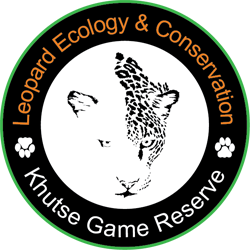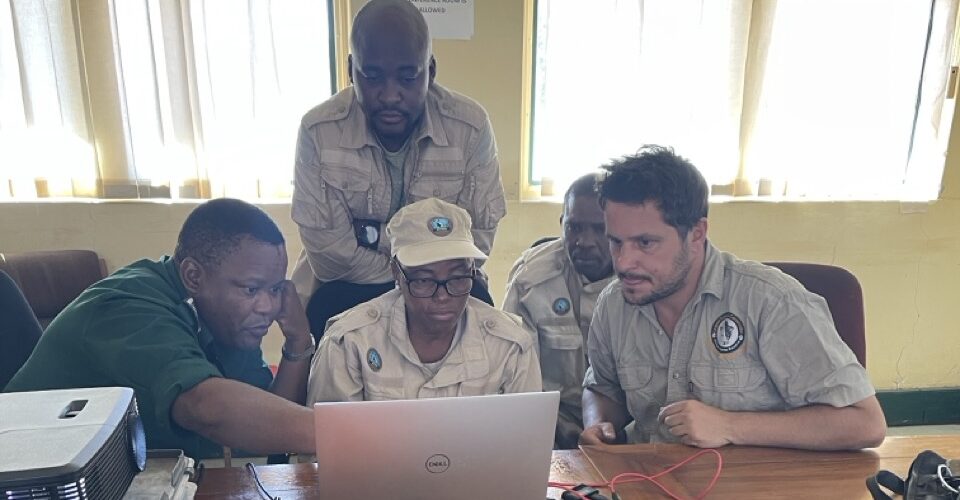Leopard Ecology & Conservation believes strongly creating a tight network of researchers, communities, institutions and private stakeholders who collaborate to find solutions to scientific and conservation challenges.
Here are some examples of past and current collaborations:
- LEC has joined the EarthRanger Community for improved activity monitoring, collaborates with Conservation AI and African Carnivore Wildbook for species and individual indentification from cameratrap images, and stored GPS collar data on MoveBank for potential new studies.
- The beekeeping project from LEC and Fondazione Zoom in the Kaudwane community has evolved further, with BUAN joining to enhance the research component. The project now also includes monitoring flowering seasons and creating a pollen library for local plant species.
- Since 2023, LEC collaborates with Marie-Charlotte Guilen from UCLouvain, Belgium, on the large herbivore daily travel distance project, combining LEC’s tracking expertise with UCLouvain’s analytical skills.
- Efforts to establish long-term collaborations with local universities (BUAN, BIUST) have resulted in a busy schedule of student attachments, practical excursions, and MSc projects.
- LEC is a contributing member of the Botswana Carnivore Forum, helping to provide population data on large carnivores. Through this collaboration we have contributed data for a National Large Carnivore Distribution Map and participated in the Central Kalahari Game Reserve survey that produced data on brown hyena population densities for a paper published in Koedoe – African Protected Area Conservation and Science on the conservation implications of brown hyaena population densities and distribution across landscapes in Botswana.
- Twice yearly, LEC undertakes bird surveys as part of the Birdlife Botswana Bird Population Monitoring Programme.
- LEC contributed to joint research into felid geographic ranges, including providing camera trap data that supports the possible range expansion of serval to include the Central Kalahari. The findings were published in CATNews in 2019.
- Since 2018, LEC has been partnering with Professor Craig Packer and Dr Natalia Borrego of the Lion Center, University of Minnesota on a National Geographic grant-funded project. The project is using the remarkable track interpretation skills of San trackers to reconstruct lion movements during hunting activity, in order to assess the extent to which lions act cooperatively during group hunts.
- For the past five years, LEC has been collaborating with the Botswana University of Agriculture and Natural Resources to develop a training course for livestock farmers and herders. The 3-tiered course educates farmers and herders in wide range of topics, including animal husbandry and rangeland management. The aim is to build the capacity of farmers and herders so that they can make informed decisions about the management of available resources in their area, at the same time as providing them with tools to minimise conflict with predators. We hope the course will achieve official accreditation from the Botswana Qualifications Authority in 2020/2021.
- In 2014 and 2015, LEC partnered with the Department of Wildlife & National Parks, to develop draft guidelines for the translocation of problem leopards. The guidelines were developed using data gathered from a 2-day translocation workshop where more than 40 wildlife managers, veterinarians and researchers from various Government Departments and NGOs were invited, attendees included: Problem Animal Control, Veterinary Services, Kalahari Research and Conservation, Cheetah Conservation Botswana, Birdlife Botswana, N/ a’ an ku se Foundation and the Namibia African Wild Dog Project.
If you are interested in collaborating with Leopard Ecology & Conservation on a research project or are interested in using any of our datasets from the Khutse Game Reserve and Southern Central Kalahari region, please fill in this form and send it to Dr Genevieve Finerty, mail subject “Collaboration with LEC”.

